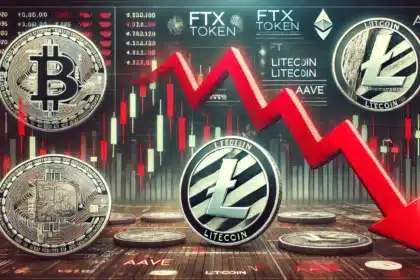A recent debate between New Democrat Senator Elizabeth Warren and Republican candidate John Deaton became a heated fight, about mostly the regulation of cryptocurrencies. Held on October 15, it was the first debate in a series leading up to the US Senate elections, for which is scheduled November 2024. Both candidates represented political and crypto polar opposites, generaing a clash of ideologies as much or even more than votes.
Crypto Regulation and Consumer Protection
On the debate stage, Warren repeated her pledge to see more aggressive oversight of crypto that mirrors how banks and other traditional financial institutions are treated. She claimed that they are widely exploited in the criminal underground for such illegal endeavours as money laundering, financing acts of terrorism or drug dealing. According to her, this type of regulatory intervention is necessary in order to prevent such abuse as well as for consumer protection and anti-money laundering through the application of digital assistance laws.

Yet the popular pro-crypto attorney John Deaton accused Warren of being biased for an ‘Anti-Crypto Army’ on the other hand. He chided her for focusing on regulating crypto over more potent issues, like inflation and illegal immigration, which he believes are hurting Massachusetts middle- and lower-income residents. Speaking to Deaton, the academic said that by taking its current position, governments are imposing a chilling effect on innovation and missing out on crypto’s potential for democratizing finance.
Banking Failures and Double Standards
One of the standout moments in the debate occurred when the discussion shifted to traditional banking. Both candidates agreed that the U.S. banking system has failed many Americans, but Deaton claimed that Warren’s priorities are misplaced. He pointed to a December Senate hearing where Warren had the opportunity to question JPMorgan CEO Jamie Dimon but instead focused her inquiries on crypto-related crime, ignoring the bank’s alleged links to Jeffrey Epstein’s criminal network.
The earlier publication by Deaton had additional jobs that Warren to have sidetracked from critical banking problems for her alleged favouring of big banks at the cost of a promising new crypto industry, as our team covered early last week. He said that Warren’s proposal was not borne out of real concerns for consumer protection but instead, a front to advocate against digital assets. In a formal comeback, Warren said she wants to make certain all forms of financial services — including crypto companies — are subject to the laws that prevent exploitation and outright criminal activity.
Campaign Funding Controversies
The exchange also incorporated a discussion of campaign finance with Warren, noting a large percentage of Deaton’s funding comes from the crypto industry. She said this called into question his neutrality as well as the possibility of conflicts of interest if he wins. Much of Deaton’s small campaign is being funded by crypto enthusiasts who have little to lose from their spending but are banking on special favours post-election, Warren said.
Deaton, however, dismissed these claims as nonsense and said while he has the support of some in digital currency, likely due to being so controversial even within his own community, many have been put off. He highlighted how he would maintain his independence and, in no way, take cues from the industry participants, as well as confirming that rules must be written on a fair basis that ensures innovation can thrive while continuing to protect consumers.
The Broader Political Context
The debate takes place at a time when crypto regulation is being discussed all across the U.S. as part of an even bigger, ongoing national dialogue on digital assets in general. Warren, who has cultivated an image as a consumer advocate in the Senate — even to the point of getting kicked off stage at press events crashed during her presidential campaign by shouting about crypto and how it hurts people! — this is consistent with Warren’s broader regulatory worldview. But critics like Deaton fault her for refusing to acknowledge the human cost of blockchain technology and its uses.

A race closer to home will directly gauge public support for crypto regulation in the Massachusetts Senate election, where a series of polls have suggested Warren holds an over 20-point lead. Still, Deaton has hope, taking advantage of the growing wave of support from crypto advocates and those disaffected by traditional banking systems. He says the November election could be a “catalytic moment for U.S. crypto policy that might swing toward an increasingly warm and innovative open-arms regulatory posture.”
Conclusion
During the discussion between Elizabeth Warren and John Deaton, a clear wedge passed through how America is addressing cryptocurrency regulation. Where Warren favours heavy-handed regulation to fight crime and protect consumers, Deaton principles an approach that is pro-innovation while still recognizing the risks associated with digital assets. Fortunately, the crypto community and voters in general will have a second chance to observe; however, these candidates sketch out their visions for regulation on October 17th. The outcome of this Senate race could shape the political landscape in Massachusetts and potentially even influence policy at a national level with respect to digital assets for many years.
Drop your thoughts with TheBITJournal in the comments on Twitter, LinkedIn, and on the Telegram channel.




























